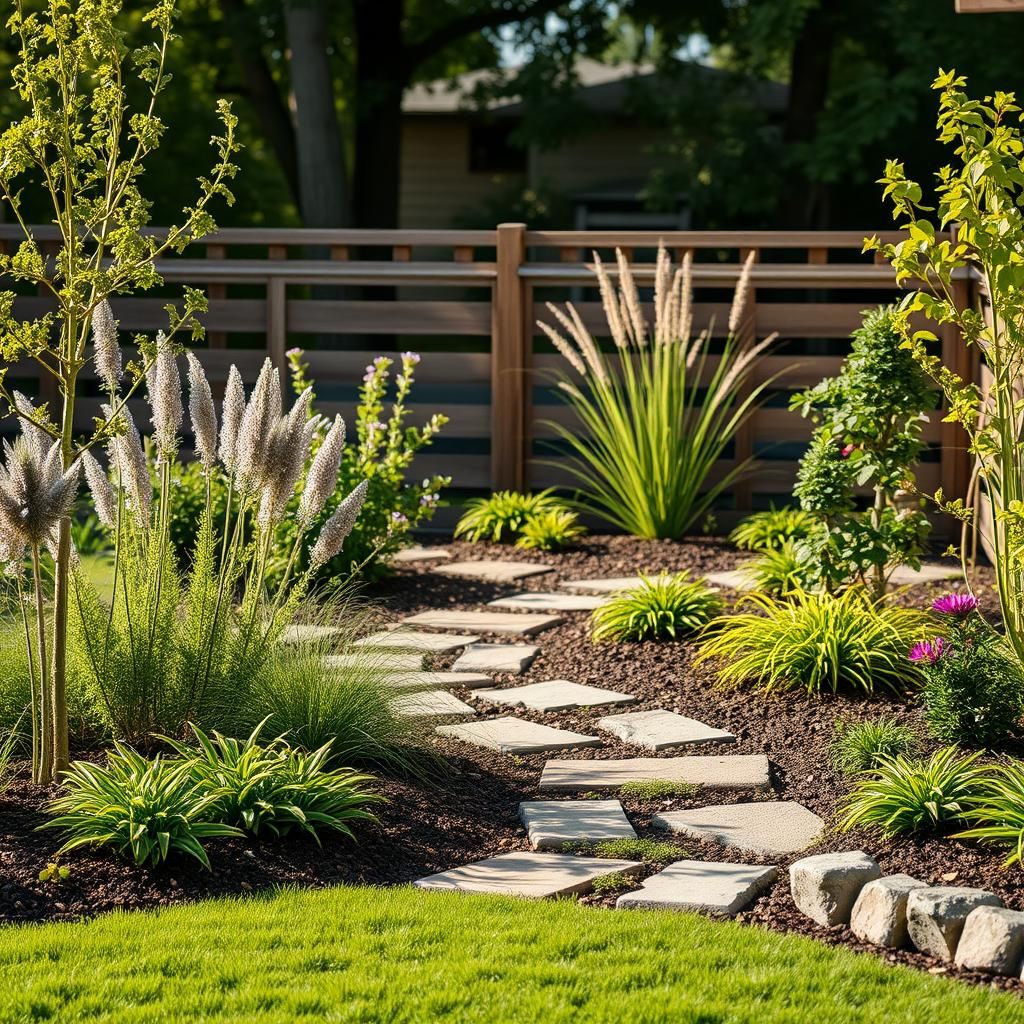Should I Do Landscaping Myself? A Comprehensive Guide to DIY Landscaping Pros and Cons

Embarking on a landscaping project can be both exciting and daunting. For many homeowners, the question arises: Should I do the landscaping myself? This comprehensive guide explores the pros and cons of DIY landscaping, weighing the potential savings and personal satisfaction against the challenges and time commitment involved. Whether you are looking to enhance your outdoor space, increase your property value, or simply enjoy a fulfilling hands-on experience, understanding the implications of taking on such a project is essential. Join us as we delve into the benefits and drawbacks of DIY landscaping, helping you make an informed decision for your home.
Should I Do Landscaping Myself?
Deciding whether to do landscaping yourself can be a rewarding yet demanding task. While taking on this project can save you money and provide a sense of accomplishment, it often requires significant time, physical effort, and a certain level of expertise. Before proceeding, it's essential to evaluate your skills, the scale of the project, and the tools required. If you’re passionate about gardening and landscaping and can commit to learning the necessary techniques, DIY landscaping may be an excellent route for you. However, if the project seems overwhelming or you lack the appropriate equipment and knowledge, it might be beneficial to hire a professional.
Benefits of DIY Landscaping
One of the primary benefits of DIY landscaping is the cost-effectiveness it offers. By doing the work yourself, you can save on labor costs that typically account for a significant portion of landscaping expenses. Additionally, engaging in your landscaping project allows you to have complete creative control over the design, ensuring that the final outcome aligns with your vision. Furthermore, the experience can be both enjoyable and therapeutic, allowing you to connect with nature while enhancing your outdoor space.
Challenges of DIY Landscaping
While DIY landscaping can be fulfilling, it comes with several challenges. The first challenge is the time investment; landscaping projects can be time-consuming, especially if you have a busy schedule. Secondly, you may encounter various obstacles, such as poor soil quality, uneven terrains, or weather conditions that can complicate your efforts. There is also the potential for frustration if you lack the necessary tools or skills required for specific tasks like planting or hardscaping, which can lead to a less-than-satisfactory outcome.
Skills Required for DIY Landscaping
Successfully completing a landscaping project requires a diverse set of skills. You need to have a good understanding of planting techniques, soil preparation, and irrigation systems. Moreover, knowledge of landscape design principles will help you create visually appealing outdoor spaces. Familiarity with power tools and landscaping equipment is also essential for performing tasks like laying patios or building fences. Without these skills, you may find the process more difficult and less enjoyable.
See also:
Tools and Supplies Needed
To execute a successful DIY landscaping project, you will need a variety of tools and supplies. Essential tools often include a shovel, rake, garden hoe, and pruning shears, among others. Depending on the complexity of your project, you might also require woodworking tools for building structures and power tools such as a tiller or a lawnmower. Additionally, selecting appropriate plants, soil, mulch, and any decorative elements like stones or planters will be crucial in achieving your desired landscape design.
When to Hire a Professional
Though DIY landscaping can be fulfilling, there are times when hiring a professional may be the best choice. If the project is complex, extensive, or involves significant hardscaping, a professional may ensure the work is completed correctly and efficiently. Additionally, if you lack the time, patience, or necessary skills to complete the project satisfactorily, reaching out to an expert can save you from potential frustration and costly mistakes. Ultimately, understanding your limitations and the scope of your project will guide your decision on whether to hire a professional or proceed with DIY landscaping.
| Aspect | DIY Landscaping | Hiring a Professional |
|---|---|---|
| Cost | Generally lower; you save on labor | Higher; includes labor and expertise |
| Time | Can be time-consuming | Usually quicker; professionals have experience |
| Control | Complete creative control | Professional guidance on design |
| Skill Level | Requires a variety of skills | Experts in landscaping |
| Customization | Fully customizable to your vision | Follow expert's recommendations for best results |
Understanding the Costs of DIY Landscaping vs. Hiring a Professional
When considering whether to undertake landscaping yourself or hire a professional, understanding the potential cost implications is crucial. DIY landscaping may appear to save money at first glance, as you avoid labor costs charged by professionals. However, it is essential to factor in the costs of materials, tools, and potential mistakes that could require additional expenses to rectify. Additionally, your time is valuable and should be weighed against the fees a contractor would charge. Therefore, a careful cost-benefit analysis will help you make an informed decision regarding your landscaping project.
Time Commitment for DIY Landscaping
One of the most significant factors in deciding on DIY landscaping is the time commitment required. Landscaping projects can often take longer than expected, particularly for those who are novices in gardening and design. This includes time spent on planning, sourcing materials, and physically completing the work. If you have a busy schedule or other competing priorities, consider that the time spent on landscaping may detract from other important activities in your life.
Skill Level and Experience
Your skill level and experience in landscaping should play a critical role in your decision-making process. If you have a strong background in gardening or have successfully completed similar projects, you may be more confident in your ability to execute a DIY landscape. Conversely, if you lack experience, you might face challenges that could lead to subpar results or even unanticipated costs. Assessing your skills honestly can save you time and frustration.
See also:
Potential for Personal Satisfaction
One of the undeniable benefits of DIY landscaping is the potential for personal satisfaction. Completing a landscaping project on your own can fill you with a sense of accomplishment and pride in your creative expression. Enhancing your outdoor space with your own hands allows you to customize aspects to fit your personal style, creating a unique environment that reflects your preferences. This satisfaction can be incredibly rewarding, even if it comes with challenges.
Impact on Property Value
Another aspect to consider is how your landscaping efforts will affect your property value. Professionally designed landscapes may offer a higher return on investment due to their aesthetic appeal and value-adding features. Conversely, DIY projects may enhance your home’s worth if done well, but poor execution can lead to devaluation. Understanding what elements constitute good landscaping and aligning your DIY projects with those standards is essential for maximizing your investment.
Long-Term Maintenance Requirements
Lastly, consider the long-term maintenance that DIY landscaping may entail. Different plants and landscaping styles require varying levels of upkeep. If you choose not to hire a professional, be prepared for ongoing tasks such as mowing, pruning, and seasonal planting. Assess your ability and commitment to maintaining your landscape over time. The best-case scenario is one that provides you with both beauty and manageable care.
Questions from Our Readers
Should I do landscaping myself or hire a professional?
Deciding whether to do landscaping yourself or hire a professional depends on your budget, skills, and the complexity of the project. If you have a good understanding of plants, design, and tools, you might enjoy the satisfaction of completing the work yourself. However, hiring a professional can save you time and possibly provide a higher quality result, especially for larger or intricate projects.
What are the benefits of doing landscaping yourself?
One of the main benefits of doing landscaping yourself is the cost savings. You eliminate labor costs, and it can be more affordable to purchase materials directly. Additionally, it provides a great opportunity to express your creativity and gain a sense of accomplishment once the project is completed. Working on your landscape can also serve as a therapeutic and fulfilling activity.
See also:
What skills do I need for DIY landscaping?
For successful DIY landscaping, you should have some basic skills in gardening, such as understanding plant care, soil types, and local climates. Familiarity with tools and landscaping techniques, such as planting, hardscaping, and irrigation, is also important. Being able to create a design plan and having an eye for detail will help you achieve a balanced and aesthetically pleasing landscape.
What common mistakes should I avoid in DIY landscaping?
Common mistakes in DIY landscaping include overplanting, not considering the mature size of plants, or failing to plan for drainage and irrigation. It's also important to avoid rushing the design process; taking the time to draft a solid plan can prevent costly changes later. Additionally, neglecting to research the maintenance needs of your plants can lead to challenges down the road.

If you want to read more articles like Should I Do Landscaping Myself? A Comprehensive Guide to DIY Landscaping Pros and Cons, we recommend you check out our Landscaping category.
Leave a Reply
Related Articles